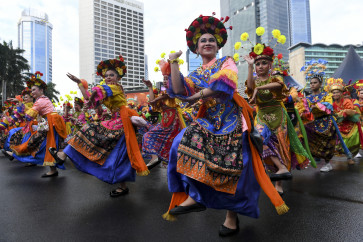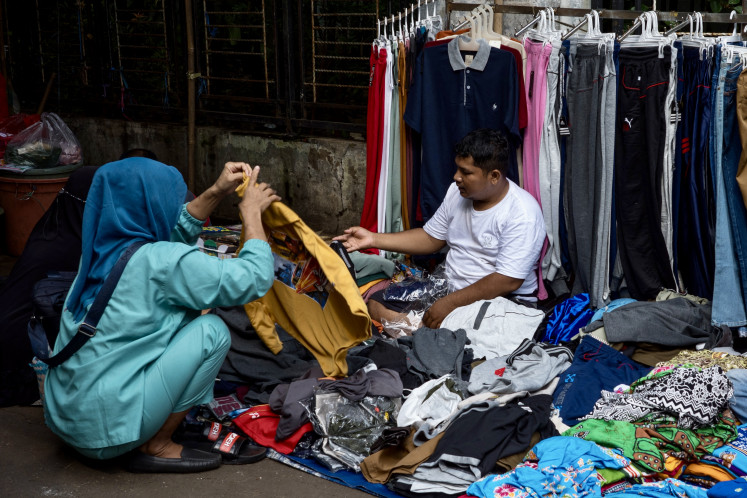Popular Reads
Top Results
Can't find what you're looking for?
View all search resultsPopular Reads
Top Results
Can't find what you're looking for?
View all search resultsRural development will curb migrants
An expert says promoting rural investment will reduce poverty, promote employment and slow rapid urbanization
Change text size
Gift Premium Articles
to Anyone
A
n expert says promoting rural investment will reduce poverty, promote employment and slow rapid urbanization.
Sonny Harry B. Harmadi, head of Demographic Institute at the University of Indonesia’s (UI) economics school, said on Saturday that reducing the pace of urbanization could only be done if the government created more employment opportunities in rural areas.
“Promoting rapid agricultural and rural development is critical for stopping rapid urbanization, instead of only prohibiting people from moving to urban areas,” Sonny told The Jakarta Post.
Rural dwellers continue to flock to the nation’s urban areas looking for work, leading to population explosions in Indonesia’s biggest cities, such as Jakarta; Bandung, West Java; Surabaya, East Java; and Makassar, South Sulawesi.
Urban population growth might increase further due to recent moratoriums on sending Indonesian workers to Saudi Arabia and on civil servant recruitment, Sonny said.
According to data from the United Nations Population Fund (UNFPA), most people in Indonesia live in rural areas and depend on agriculture for their livelihoods.
Almost 20 million rural residents, comprising about 17 percent of the total rural population, lived in poverty in 2010, according to UNFPA, while about 11 million of the nation’s poor lived in urban areas, comprising about 10 percent of the urban population.
The province with the highest poverty rate in 2010 was Papua, with 37 percent of residents living below the poverty line.
Development disparities have led to massive internal migrations from rural to urban areas at the end of every Idul Fitri, as Jakartans return from hometown holiday visits with relatives in tow.
Anticipating an influx of new urban residents this year, Coordinating People’s Welfare Minister Agung Laksono told Idul Fitri travelers not to bring family members with them when returning to Jakarta.
“Governors in the provinces should tell holiday travelers that anyone who wants to come back to the city after Idul Fitri should not bring others since it will significantly contribute to urban growth,” Agung said.
Sonny, however, said that no single individual or diktat could prevent urbanization.
“We can’t forbid people from moving to urban areas because such decisions are individual in nature. It won’t be effective.”
Sudibyo Alimoeso, the National Demography and Family Planning Agency’s (BKKBN) secretary-general, said rapid urbanization would create demographic problems if it only involved people without skills.
Urban influxes would not be a burden if skilled workers migrated to cities, he said.
“Rapid urbanization comprised of unskilled newcomers, however, will give big cities demographic burdens such as high crime rates and deep poverty, caused by their difficulties in finding decent jobs.”










